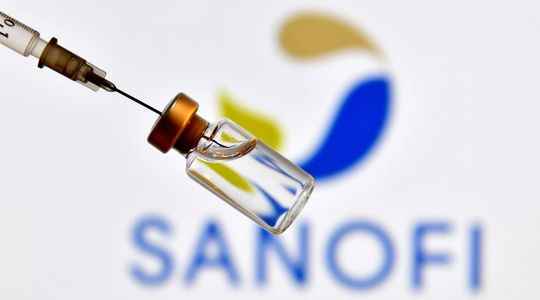Nirsevimab. This monoclonal antibody, which recalls the barbaric names of scientific advances, could change the lives of many patients. The French pharmaceutical group Sanofi is in the process of marketing the first vaccine for all against bronchiolitis, this infection of the respiratory tract which mainly affects infants and the elderly, using this immunization agent. On Thursday, the European Medicines Agency, through the Committee for Medicinal Products for Human Use (CHMP), issued a favorable opinion on the marketing.
To achieve this vaccine, which will be sold under the name Beyfortus and for the time being only for newborns, Sanofi has teamed up with the British group AstraZeneca. The laboratories have succeeded in developing the antibody which should protect infants throughout the circulation season of the respiratory syncytial virus (RSV) which causes bronchiolitis.
If subsequently approved by the European Commission, Beyfortus will become the first and only single-dose passive immunizing agent for infants. All young children will be affected. They will be vaccinated from the first year of exposure to the virus.
- How does this vaccine work?
Beyfortus works on a different model from most vaccines since it involves directly inoculating a monoclonal antibody developed in the laboratory. Since infants do not have the means to build their immune response, they cannot rely on their metabolism to develop a reaction to the injection themselves. “We give him antibodies that will protect him,” says AFP Jean-François Toussaint, head of vaccine research and development for Sanofi.
The newborn will enjoy a so-called passive immunity, with a single dose. Accessible to all, the vaccine should prevent respiratory complications for a good number of children. Until then, there was only one bronchiolitis vaccine marketed by AstraZeneca under the name Synagis. But it is issued only to at-risk or premature children. It also requires multiple doses.
Conducted on 1,490 infants between July 2019 and February 2021, the phase 3 clinical trial of the vaccine demonstrated 74.5% efficacy against infections (pneumonia, bronchiolitis) caused by RSV requiring management, a recalled the press release from Sanofi.
- How was it highly anticipated?
This is a major medical advance. Since the mid-1960s, many studies and research have been carried out by scientists and researchers with the aim of finding a solution to prevent pulmonary complications. No product had previously been able to contain the widespread infection.
It is also a relief for Sanofi and the sector of pharmaceutical laboratories, battered on the stock market. Sanofi is particularly in the sights of investors who fear possible financial fallout around the litigation on Zantac, this treatment against heartburn withdrawn from the market in 2019. Several American patients accuse the drug of being responsible for cancers. The share price slumped in August. “This is excellent news for Sanofi, commented economist Frédéric Bizard to France Info. When you are first to market, you have a competitive advantage, especially in terms of price.” He adds that “this will guarantee financial revenues for Sanofi in the coming years.”
- What does bronchiolitis represent in France?
Bronchiolitis is a common and highly contagious respiratory disease. It mainly affects infants between the ages of 2 and 8 months. The transmission period generally begins in mid-October and peaks in December. The main symptoms are a strong cough and difficult breathing. Every year, in France, 30% of infants under the age of two are affected, i.e. 480,000 babies. Most of the time, the disease is mild. However, the virus can cause pneumonia. Last year, a strong epidemic of bronchiolitis took hold of France.
This type of pulmonary complication requires a visit to the emergency room or even a hospital stay. “It is the first cause of hospitalization in children under one year old”, underlines Jean-François Toussaint. According to Public Health France, 2% to 3% of infants this age are hospitalized each winter for acute bronchiolitis.
